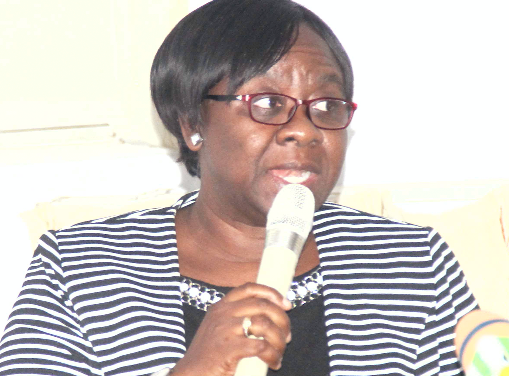
Stakeholders discuss improving Ghana’s neonatal mortality rate
The Sustainable Development Goal 3 (SDG3) calls for a guarantee healthy life and the promotion of the well-being of all at all ages.
Advertisement
To this end, a national conference to harness stakeholders’ contributions on how to improve on the country’s neonatal mortality rate is underway in Accra.
The three-day conference, organised by the Ghana Health Service (GHS), in collaboration with the United National Children’s Fund (UNICEF), is aimed at ensuring that the country achieved the 2030 SDG of reducing neonatal deaths to 12 per
Annual conference
The conference, which is the seventh to be organised on an annual basis, forms part of a National Newborn Strategy and Action Plan and is on the theme: “Reaching every newborn, countdown to 2030; Don’t leave me out.”
Currently, Ghana’s neonatal mortality, according to the 2017 Ghana Maternal Mortality Health Survey, is 25 deaths per every 1,000 live births and the SDG requires that the country reduces this to 12/1000 by 2030.
The Minister of Health, Mr Kwaku Agyeman-Manu, in a keynote address, said child health was always a priority for the government, adding that several international recommended interventions, as well as local initiatives, were being implemented by the ministry, sector agencies and partners to promote child survival and development.
Mr Agyeman-Manu, whose speech was read on his behalf by the Director, Administration and Legal
He said the government’s policies and strategies such as the provision of free antenatal, delivery and post-natal services, and the expansion of Community-based Planning and Services (CHPS) would be continually pursued as efforts were made to improve the implementation and coverage of the National Health Insurance Scheme (NHIS).
Strategies and implementation
The Deputy Director in-charge of Reproductive and Child Health, GHS, Dr Isabella Sagoe, in a presentation on “Progress made in implementing national newborn health strategy”, said the analysis of data available revealed that stagnation in
To help address the situation, Dr Sagoe-Moses said a National Newborn Strategy and Action Plan 2014 to 2018 was developed to contribute to the reduction of institutional
In an address by the Director, Family Health, GHS, Dr Patrick Aboagye, on behalf of the Director General, GHS, Dr Anthony Nsiah-Asare, said the newborn stakeholders’ conference was an annual event that provided an avenue for all stakeholders in newborn health across the country to come together and take stock of their activities, plan for the coming year and to also share innovative ideas that would help save the newborn.




